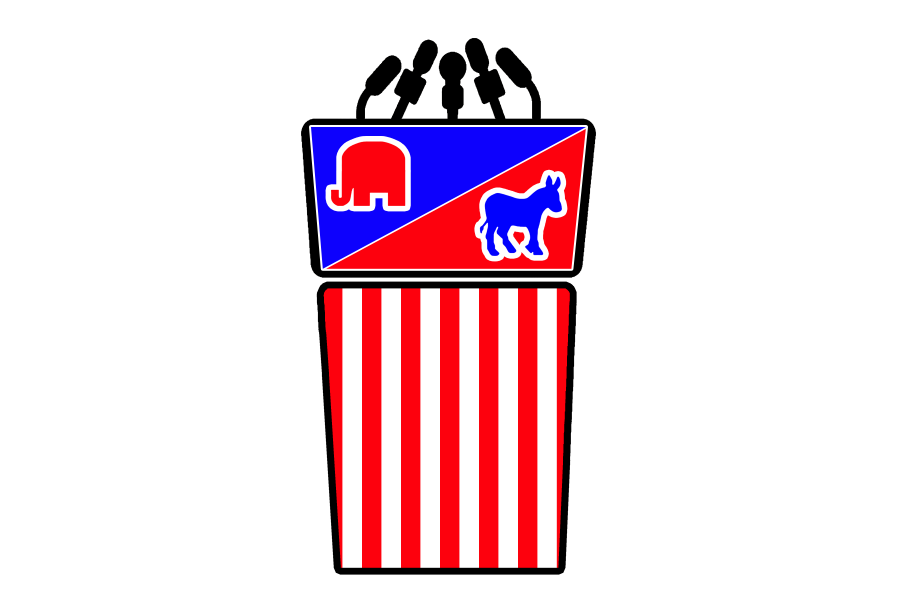Do debates matter?
September 29, 2016
The presidential debates are to the election what the Super Bowl is to the NFL: two candidates, navigating through the thick waters of their primary campaigns, have finally earned the opportunity to stand for their political party in the showdown that is the presidential election. In what was recorded as the most-watched presidential debate ever, the Donald Trump and Hillary Clinton face-off carried all the anticipation of an event long in the making. Preceded by months of mudslinging, this debate was poised to be particularly personal for the candidates, who have both been the subject of deep criticism for their respective character flaws (think of the “Crooked Hillary” and “Love Trumps Hate” mantras). When the candidates entered the Hofstra University stage Sept. 26, the outcome was predictable: the conversation on character outweighed policy, and voters were left with no new information.
So what does this all mean? How can we interpret the significance of this debate for the election (assuming it has any)? To begin, the history of presidential debates in America teach us a lot about how we as a country evaluate our candidates. Whether we look back to a “sweaty” Richard Nixon or a “comical” Ronald Reagan, major news outlets and the American public alike have ascribed to the tradition of identifying the losers and winners of a debate in an attempt to preemptively determine who will win on election night. Yet a necessary question must follow: do the debates really matter to voter preferences, as measured by differences in pre-debate and post-debate polling results? Rather than engage in the post-debate frenzy of shouting out the winner or loser, the rest of this article attempts to understand the polling and how the debates affect their significance to the election as a whole.
Heading into this debate, RealClearPolitics (a rather non-partisan aggregate polling website) reported in its general election polling data section that Clinton led in three different prominent polls, surveyed from Sept. 22 to 25. In the two days following the debate, RCP noted a 0.6 percent increase in Clinton’s favor, where Clinton and Trump stand at 47.2 percent and 44.3 percent, respectively. From a purely quantitative perspective, this may signal to voters that Clinton is the presumptive winner of the debate. To support this, major newspaper outlets and cable companies have heralded Clinton as the winner of the debate. Trump, on the other hand, finds recognition of a win for him primarily in online polling results, which can encompass a larger participating group, but also has a voluntary participation base rather than a truly randomized sample, thus increasing the potential bias.
Academic writings by political scientists preach the opposite: that debates have little significance on the outcome of elections, and that voter preferences are most significantly swayed during and after each party’s conventions in the summer. So will this debate really have an effect on the outcome of the election? Given the unpredictability that has characterized this election throughout the past year, I am inclined to say yes. The political dark horse that is Trump has emerged from reality TV star to Republican presidential candidate in the matter of a year. Clinton has shifted far more to the left than ever imaginable. In the spirit of bringing joy to a dispiriting election, I look forward to seeing how the next two presidential debates will alter the course of the election.






















